Your search “Keep%20ethe%20eDeath%20ePenalty%abolished%20ein%20ethe%20ePhilippfines%20e%20e%20e%20e%20e%20e%20e%20e%20e%20e/page/www.deathpenaltyindia.com/img/pages/resources/20e17Statistics.pdf ”
Document(s)
The Death Penalty in Botswana: Hasty and Secretive Hangings – International Fact Finding Mission
By International Federation for Human Rights (FIDH), on 8 September 2020
2020
NGO report
Botswana
More details See the document
This report determined that the death penalty remains a sensitive and secretive issue in Botswana. The authorities are reluctant to encourage public debate about the death penalty and its possible abolition. There is a total lack of transparency in the actual execution process of the death sentence. The hasty way in which most recent hangings have been carried out, further cast doubt upon the willingness of the Government of Botswana to seriously address this issue.
- Document type NGO report
- Countries list Botswana
- Themes list Transparency, Country/Regional profiles,
Document(s)
Uganda: Challenging the Death Penalty
By International Federation for Human Rights (FIDH) / Thomas Lemaire / Eric Mirguet / Mary Okosun, on 1 January 2005
2005
NGO report
More details See the document
The general feeling of NGOs and abolitionists in Uganda is that the most pressing issue is the situation of ordinary prisoners, while the death penalty as administered by the military should be addressed at a second stage. The questions relating to the military are sensitive issues in Uganda, which might also explain that position. The focus of the present report is consequently mainly on the death sentences pronounced by ordinary criminal courts.
- Document type NGO report
- Themes list Country/Regional profiles,
Document(s)
No one is spared – The widespread use of the death penalty in Iran
By League for the Defence of Human Rights in Iran, on 5 November 2020
2020
Drug Offenses
Fair Trial
Iran (Islamic Republic of)
Juveniles
Women
More details See the document
- Document type Array
- Countries list Iran (Islamic Republic of)
- Themes list Drug Offenses / Fair Trial / Juveniles / Women
Document(s)
Iran/death penalty: A state terror policy – Special edition for the 4th World Congress against the death penalty
By Bijan Baharan / International Federation for Human Rights (FIDH), on 8 September 2020
2020
NGO report
Iran (Islamic Republic of)
faMore details See the document
This report covers the various aspects of the topic including: domestic laws, international legal framework, execution of juvenile offenders, religious and ethnic minorities, and methods of execution. According to the report, there are over 20 main categories of offences, some of them with several sub-categories, in the IRI, which are punishable by the death penalty. The majority of those “offences” are certainly not among “the most serious crimes.” Some others should not be considered as “offences” at all. In conclusion, FIDH issued a wide set of recommendations to the IRI and the international community. Among others, it recommended the adoption of an immediate moratorium on executions in light of the serious shortcomings of the guarantees of due process and fair trial.
- Document type NGO report
- Countries list Iran (Islamic Republic of)
- Themes list Minorities, Country/Regional profiles,
- Available languages ایران: مجازات اعدام سیاست دولتی ایجاد وحشت ـ ویژه نامه برای کنگره ی جهانی ضد مجازات اعدام
Document(s)
Vietnam: From “Vision” to Facts: Human Rights in Vietnam under its Chairmanship of ASEAN
By Vietnam Committee on Human Rights / International Federation for Human Rights (FIDH) / Quê Me: Action for Democracy in Vietnam, on 8 September 2020
NGO report
Viet Nam
More details See the document
The use of the death penalty is frequent in the Socialist Republic of Vietnam. In 2009, the government reduced the number of offences punishable by death from 29 to 22. Capital punishment is applied for crimes including murder, armed robbery, drug trafficking, rape, sexual abuse of children, and a range of economic crimes. Execution is by firing squad. A draft law was introduced in November 2009 proposing the use of two methods of execution, either by firing squad or by lethal injection. Statistics on the number of death sentences and executions are not made public. Indeed, following criticisms by international human rights organisations, in January 2004, Vietnam adopted a decree classifying death penalty statistics as “state secrets”. According to the Vietnamese and international press, at least 100 people are executed each year in Vietnam. In 2007, 104 death sentences were pronounced, including 14 women. In 2010, the official legal magazine Phap Luat (Law) reported 11 death sentences for the month of January alone.
- Document type NGO report
- Countries list Viet Nam
- Themes list Death Row Conditions, Firing Squad,
Document(s)
The Death Penalty in Uzbekistan: Torture and Secrecy
By International Federation for Human Rights (FIDH) / Christine Martineau / Caroline Giraud / Richard Wild, on 1 January 2005
2005
NGO report
rufrMore details See the document
On August 1, 2005, President Karimov announced, through a presidential decree, that the abolition of the death penalty was planned for January 1, 2008. The report concludes that the Uzbek authorities are responsible of serious and systematic human rights violations in the framework of the administration of criminal justice. The rights of those arrested are systematically violated. They often lack any access to a lawyer during their pre-trial detention, their families are not informed and torture is used in order to extort confessions, which often serve as a basis for their condemnation.
- Document type NGO report
- Themes list Torture, Death Row Conditions, Country/Regional profiles,
- Available languages Смертная казнь в Узбекистане: пытки и секретностьLa peine de mort en Ouzbékistan: torture et opacité
Document(s)
The Death Penalty in Taiwan: Towards Abolition?
By International Federation for Human Rights (FIDH) / Sharon Hom / Penelope Martin / Siobhan Ni Chulachain, on 1 January 2006
2006
NGO report
More details See the document
This report highlights serious concerns regarding the conditions of detention of prisoners in Taiwan. Although there has been some improvement in conditions in recent years, FIDH and TAEDP report severe problems of overcrowding and inadequate medical treatment for prisoners, requiring urgent attention. In addition, the mission found that the use of shackles, in violation of international standards, is widespread. Prisoners, in particular those on death row, regularly have their legs chained together for 24 hours per day, in violation of the prohibition against cruel, inhuman and degrading treatment. Despite recent reforms to the criminal justice system, FIDH and TAEDP found that serious failings continue to lead to miscarriages of justice. The report highlights persistent problems including discrimination, limited access to legal representation, piecemeal and only partially implemented reforms and unsatisfactory appeals procedures. FIDH and TAEDP found that training and supervision for actors within the system, including police, is grossly inadequate, leading to failures in the collection and preservation of evidence, whilst prosecutors and judges are inclined to “rubber stamp” police findings.
- Document type NGO report
- Themes list Trend Towards Abolition, Death Row Conditions, Country/Regional profiles,
Document(s)
Pakistan, a long march for democracy and the rule of law
By International Federation for Human Rights (FIDH) / Fatma Cosadia / Odette Lou Bouvier, on 1 January 2009
2009
NGO report
frMore details See the document
Regularly denounced by human rights associations, violations of the right to a fair trial and inequality before the law for prisoners who face the death penalty are flagrant. Most prisoners belong to the most disadvantaged social classes or to ethnic or religious minorities. Involved in often questionable circumstances, with confessions extracted under frequent beatings and torture, many litigants are not given an adequate defence. To defend these cases, lawyers appointed ex officio receive 200 rupees per hearing (less than 5 U.S. dollars). Often young and inexperienced to deal with procedures not respecting the minimum fair trial guarantees, these lawyers are not in a position to ensure the mandate entrusted to them.
- Document type NGO report
- Themes list Due Process , Discrimination, Country/Regional profiles,
- Available languages Pakistan, une longue marche pour la démocratie et l'etat de droit
Document(s)
Slow march to the gallows: Death penalty in Pakistan
By International Federation for Human Rights (FIDH) / Anne-Christine Habbard, on 1 January 2007
2007
NGO report
More details See the document
Pakistan ranks among the countries in the world which issue the most death sentences: currently, over 7,400 prisoners are lingering on death row. In recent years, Pakistan has witnessed a significant increase in charges carrying capital punishment, in convictions to death, as well as in executions. The HRCP and FIDH find that the application of death penalty in Pakistan falls far below international standards. In particular, they find that, given the very serious defects of the law itself, of the administration of justice, of the police service, the chronic corruption and the cultural prejudices affecting women and religious minorities, capital punishment in Pakistan is discriminatory and unjust, and allows for a high probability of miscarriages of justice, which is wholly unacceptable in any civilised society, but even more so when the punishment is irreversible. At every step, from arrest to trial to execution, the safeguards against miscarriage of justice are weak or non-existent, and the possibility that innocents have been or will be executed remains frighteningly high.
- Document type NGO report
- Themes list Due Process , Discrimination,
Document(s)
ایران: مجازات اعدام – سیاست دولتی ایجاد وحشت
By International Federation for Human Rights (FIDH) / Antoine Bernard, on 8 September 2020
2020
NGO report
Iran (Islamic Republic of)
enMore details See the document
در دوراني که حرکت به سوي لغو مجازات اعدام در سراسر جهان رو به گسترش است، تمايز جمهوري اسلامي ايران در تعداد زياد اعدام هايي است که در شرايطي آشکارا ناقض�? موازين بين المللي حقوق بشر انجام مي پذيرد. محاکمه های ناعادلانه، اعدام نوجوانان، هد�? گیری اقلیت های قومی و مذهبی… مجازات اعدام در نقض آشکار تعهدات ایران بر اساس قانون بین المللی حقوق بشر انجام می پذیرد.
- Document type NGO report
- Countries list Iran (Islamic Republic of)
- Themes list Minorities, Fair Trial, Country/Regional profiles,
- Available languages Iran/death penalty: A state terror policy
Document(s)
Iran/death penalty: A state terror policy
By International Federation for Human Rights (FIDH) / Antoine Bernard, on 1 January 2009
2009
NGO report
enMore details See the document
As momentum is gathering across the world towards abolition of capital punishment, Iran ranks second for number of executions, after China, and first for per capita executions. Unfair trials, execution of juveniles, targeting of ethnic and religious minorities… the death penalty is applied in blatant violation of Iran’s obligations under international human rights law. A very wide range of offences (including economic, drug-related, so-called sexual offences, apostasy…) carry the death penalty and the methods of execution (public hangings, stoning…)amount to the most inhuman and degrading treatment.
- Document type NGO report
- Themes list Minorities, Fair Trial, Country/Regional profiles,
- Available languages ایران: مجازات اعدام - سیاست دولتی ایجاد وحشت
Document(s)
The Death Penalty in Japan: The Law of Silence – Going Against the International Trend
By Florence Bellivier / International Federation for Human Rights (FIDH) / Dan Van Raemdonck / Jiazhen Wu, on 8 September 2020
2020
NGO report
Japan
frMore details See the document
This report is the outcome of a fact-finding mission conducted by FIDH in July 2008, in order to assess the measures taken by the Japanese government to implement the recommendations made by a previous investigation, conducted in 2003.The conclusions of the report are appalling. According to Florence Bellivier, General Secretary of FIDH “Japan continues to condemn criminals to death, and incarcerate them up for decades, in prisons where secrecy and isolation are commonplace, in total disregard of the world opinion”. In addition, the rhythm of the executions has accelerated over the recent years. “2008 has been a record year, with more executions this year than in any other of the last fifteen years. We are witnessing a real step backwards” added Dan Van Raemdonck, Vice-President of FIDH. Thirteen persons have been executed since the beginning of the year, and 102 are currently on death row. There has not been a single retrial of a death penalty case since 1986, and no convicted prisoner has been pardoned since 1975.
- Document type NGO report
- Countries list Japan
- Themes list Transparency, Country/Regional profiles,
- Available languages La peine de mort au Japon: la loi du silence - À contre-courant de la tendance internationale
Document(s)
The Death Penalty in the Socialist Republic of Vietnam – Special edition for the 4th World Congress Against the Death Penalty
By Vietnam Committee on Human Rights / International Federation for Human Rights (FIDH), on 8 September 2020
NGO report
Viet Nam
More details See the document
The use of the death penalty is frequent in the Socialist Republic of Vietnam (SRV). Capital punishment is applied for 22 offences, including murder, armed robbery, drug trafficking, rape, sexual abuse of children, and a range of economic crimes, such as graft and corruption, fraud and embezzlement (for 500 million dong – $33,200 – or more of state property), illegal production and trade of food, foodstuffs and medicines. Seven political acts perceived as “threats against national security” carry the death penalty as a maximum sentence. Capital punishment is most often used to sanction drug-related offences, followed by corruption, black-market and violent crimes. Vietnam has some of the harshest drug laws in the world. A 1997 law made possession or smuggling of 100g or more of heroin, or 5 kilograms or more of opium, punishable by death. In 2001, 55 sentences were pronounced for drug trafficking alone.
- Document type NGO report
- Countries list Viet Nam
- Themes list Firing Squad, Country/Regional profiles,
Document(s)
Report of the Secretary General: Question of the death penalty 2021 (A/HRC/48/29)
By Office of the High Commissioner for Human Rights (OHCHR), on 15 September 2021
2021
United Nations report
Public Opinion
More details See the document
The present report is submitted pursuant to decision 18/117 and resolution 42/24 of the Human Rights Council. The report focuses on consequences arising from the lack of transparency in the application and imposition of the death penalty on the enjoyment of human rights.
- Document type United Nations report
- Themes list Public Opinion
Document(s)
Geometrical Justice: The Death Penalty in America
By Scott Phillips and Mark Cooney, on 12 October 2022
2022
Book
United States
More details See the document
In their new book, released in the Summer of 2022, University of Denver criminology and sociology professor Scott Phillips and University of Georgia sociologist Mark Cooney apply the concept of “social geometry,” developed in the 1970s by sociologist Donald Black, to analyze outcomes of capital cases. After reviewing extensive data collected in connection with the landmark Baldus Study of capital sentencing in Georgia and from the national Capital Jury Project, they conclude that the sentencing outcomes in the cases in those databases support key principles of Black’s theory: the higher the social status of the victim and the lower the social status of the defendant, the more likely a death sentence will be imposed.
- Document type Book
- Countries list United States
Document(s)
Death Penalty and the Indian Supreme Court (2007-2021)
By Project 39A, on 8 December 2022
2022
NGO report
India
More details See the document
Death Penalty and the Indian Supreme Court (2007-2021) maps the important trends and developments in the Supreme Court’s death penalty jurisprudence. These past 15 years have witnessed significant developments in the law on capital sentencing, post-mercy jurisprudence, and other procedural developments pertaining to the administration of the death penalty. Imagined as an intellectual successor of PUCL and Amnesty International’s doctrinal study of the Supreme Court’s death penalty cases between 1950 to 2006, in ‘Lethal Lottery: The Death Penalty in India’, this report highlights the sustained inconsistency and judge-centric reasoning in capital cases, with particular emphasis on the problem of arbitrariness in approaches to capital sentencing at the Supreme Court.
- Document type NGO report
- Countries list India
Document(s)
Faith in Action
By Amnesty International - USA, on 1 January 2006
2006
Campaigning
More details See the document
Using faith to combat the death penalty: This document has sermons, prayers and services, essays, views on the death penalty, resources for discussion and action, resources for next steps.
- Document type Campaigning
- Themes list Networks,
Document(s)
A/HRC/RES/54/35 Resolution adopted by the Human Rights Council
on 7 February 2024
2024
International law - United Nations
aresfrruzh-hantMore details See the document
- Document type International law - United Nations
- Available languages A/HRC/RES/54/35قرار اعتمده مجلس حقوق اإلنسانA/HRC/RES/54/35 Resolución aprobada por el Consejo de Derechos HumanosA/HRC/RES/54/35 Résolution adoptée par le Conseil des droits de l’hommeA/HRC/RES/54/35 Резолюция, принятая Советом по правам человекаA/HRC/RES/54/35 人权理事会 通过的决议
Document(s)
International Network of Academics Against the Death Penalty
By International Academic Network for the abolition of capital punishment, on 8 September 2020
2020
Working with...
More details See the document
It is of the utmost importance, in the short and medium-term, to develop an intense work of academically nature both of study and disclosure of the problems of the abolition of the death penalty in the international scenario, to complement and help the work of the diplomatic action and non-governmental organizations. To this effect it is proposed to keep REPECAP as an ever – growing scientific world network comprising academic law scholars, human rights centers, institutions of public law and Ngos, with expertise and skill in the problems of death penalty and interests in the field of international criminal justice, as well as young researchers who have been dealing with these topics or wish to get involved with the subject, regardless of nationality or locations.
- Document type Working with...
- Themes list Networks,
Document(s)
Philippines – Committee on the Elimination of Discrimination Against Women – Death Penalty – June 2022
on 21 July 2022
2022
NGO report
Philippines
Women
More details Download [ pdf - 443 Ko ]
The Government of the Philippines has taken commendable steps toward protecting and promoting the rights of women overseas Filipino workers (OFWs), but those workers remain vulnerable to exploitation and abuse, and when they come into conflict with the law in their host countries, their vulnerabilities are compounded by linguistic and legal barriers, as well as judicial systems which fail to account for the gendered context in which they allegedly committed criminal acts. The Government of the Philippines should do more to ensure protection of the rights of these women OFWs, particularly when they are at risk of being sentenced to death.
- Document type NGO report
- Countries list Philippines
- Themes list Women
Document(s)
Experimenting with Death: An Examination of Colorado’s Use of the Three-Judge Panel in Capital Sentencing
By Lutz, Robin / University of Colorado Law Review, on 1 January 2002
2002
Article
United States
More details See the document
Mr. Page committed an atrocious crime. He did not know his victim, Peyton Tuthill, a young woman who had recently graduated from college and moved to Denver. But he was in her house, looking for money and items to sell, when she returned from a job interview. Instead of leaving her home, Mr. Page stayed to beat Peyton Tuthill, tie her up, stab her, slit her throat, rape her repeatedly, and eventually, kill her. Clearly, Ms. Tuthill did not deserve to die such a tortured death. Clearly, her death resulted from an egregious crime. However, the answer to the question of whether Mr. Page should be executed for committing this murder is not as clear. Some would answer affirmatively, others negatively. An important question is: who should decide?
- Document type Article
- Countries list United States
- Themes list Networks,
Document(s)
The war on drugs, forensic science and the death penalty in the Philippines
By Maria Corazon A.De Ungria and Jose M.Jose, on 10 August 2021
2021
Academic report
Drug Offenses
Philippines
More details See the document
The effectiveness of the death penalty to deter heinous crimes remains a contentious issue even though it has been abolished in many countries. Three years into President Rodrigo Duterte’s administration, the push to re-impose the death penalty is being taken seriously.
There is urgency in providing options to the drug problem other than killing drug suspects in the streets or sentencing them to death. The drug problem is a complex issue and exposes the human vulnerability of its users for criminal exploitation.
We propose here that addressing these vulnerabilities in a balanced and comprehensive manner through health-focused, rights-based criminal justice responses, conducting forensic science-based drug investigations and determining the social causes of drug abuse is an alternative solution that demands cooperation across different sectors of society as well as underscores the fundamental value of human life.
- Document type Academic report
- Countries list Philippines
- Themes list Drug Offenses
Document(s)
European Court for Human Rights cases involving the death penalty
By European Court for Human Rights Press Unit, on 24 June 2022
2022
International law - Regional body
Regional body report
Cruel, Inhuman and Degrading Treatment and Punishment
Death Row Conditions
Fair Trial
More details See the document
“[T]he [European Court of Human Rights] in Öcalan did not exclude that Article 2 [of the European Convention on Human Rights, protecting the right to life,] had already been amended so as to remove the exception permitting the death penalty. Moreover, … the position has evolved since then. All but two of the Member States have now signed Protocol No. 13 [to the Convention, concerning the abolishment of the death penalty in all circumstances,] and all but three of the States which have signed have ratified it. These figures, together with consistent State practice in observing the moratorium on capital punishment, are strongly indicative that Article 2 has been amended so as to prohibit the death penalty in all circumstances. Against this background, the Court does not consider that the wording of the second sentence of Article 2 § 1 continues to act as a bar to its interpreting the words ‘inhuman or degrading treatment or punishment’ in Article 3 [of the Convention, prohibiting torture and inhuman or degrading treatment,] as including the death penalty …” (Al-Saadoon and Mufdhi v. the United Kingdom judgment of 2 March 2010, § 120).
- Document type International law - Regional body / Regional body report
- Themes list Cruel, Inhuman and Degrading Treatment and Punishment / Death Row Conditions / Fair Trial
Document(s)
The Death Penalty Worldwide – Developments in 2006 (With amendments)
By Amnesty International, on 8 September 2020
2020
NGO report
arfresMore details See the document
The world continued to move closer to the universal abolition of capital punishment during 2006. By the end of the year 88 countries had abolished the death penalty for all crimes. The death penalty has now been abolished in law or practice by 128 countries. Other subjects covered in this document include significant judicial decisions; the use of the death penalty against child offenders; resumptions of executions; and campaigning activities to promote abolition.
- Document type NGO report
- Themes list Statistics,
- Available languages التطورات المتعلقة بعقوبة العدام في شتى أنحاء العالم في العام ٢٠٠٦La peine de mort dans le monde : évolution en 2006LA PENA DE MUERTE EN EL MUNDO: NOTICIAS DEL AÑO 2006
Document(s)
The death penalty worldwide developments in 2007
By Amnesty International, on 1 January 2008
2008
NGO report
fresarMore details See the document
In 2007 the world continued to move closer to the universal abolition of the capital punishment. A historical landmark is the resolution on a moratorium on executions endorsed by the United Nations. By the end of the 2007, 91 countries have abolished the death penalty for all crimes. The death penalty has now been abolished in law or practice by 135 countries. Other subjects covered in this report include commutations, judicial reviews, use against child offenders; and extradition.
- Document type NGO report
- Themes list Statistics,
- Available languages La peine de mort dans le monde : évolution en 2007LA PENA DE MUERTE EN EL MUNDO: NOTICIAS DEL AÑO 2007تطورات عقوبة العدام على النطاق العالمي في 2007
Member(s)
Città di Venezia
on 30 April 2020
The city of Venice is globally renowned for its unique cultural heritage and location. Venice is strongly mobilised to improve the well-being of its inhabitants, by promoting a peaceful coexistence among its people and stimulating inter-religious and intercultural dialogue. In this way the city is following the example of tolerance set by the ancient “Serene […]
2020
Italy

Member(s)
Organisation Marocaine des Droits Humains
on 30 April 2020
The Moroccan Organisation for Human Rights (OMDH) aims to diffuse and deepen the awareness of individual and collective human rights in socio-economic, cultural, civil and political matters. Working with other Moroccan, Arabic, African and international organisations, it organises conferences, debates, research, investigations and exhibitions as well as a video competition on human rights. The OMDH […]
Morocco
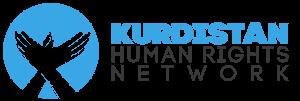
Member(s)
Kurdistan Human Rights Network
on 30 April 2020
Iran (Islamic Republic of)
Member(s)
Rescue Alternatives Liberia (RAL)
on 30 April 2020
Being the forerunner of prisoners’ rights and anti-torture and death penalty in Liberia, we have the vision that the Liberian society will adheres to: 1. The tenets of human rights, rule of law and democracy for all people; 2. Active citizens’ participation in national and local governance; and 3. Rehabilitation of survivals of torture, violence […]
Liberia

Member(s)
Women’s Information Consultative Center
on 30 April 2020
The main goal of the Women’s Information Consultative Center is to gather, generalise and disseminate information about women’s human rights and initiatives among women inside and outside Ukraine. Another goal of the Center is to create a discussion about gender issues in the political and social life of Ukraine to achieve real equality in society. […]
Ukraine

Member(s)
Lifespark
on 30 April 2020
lifespark is a Swiss organization and was founded in January 1993. lifespark is a non-profit organization, financed by membership dues and donations. All work for lifespark is done on a voluntary basis. lifespark has a central governing body; it has members from all linguistic regions of Switzerland. As of the end of 2012, the organization […]
Switzerland
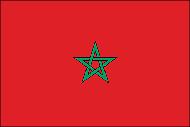
Member(s)
Coalition marocaine contre la peine de mort
on 30 April 2020
The Moroccan Coalition Against the Death Penalty (CMCPM) brings together seven NGOs: -the Moroccan Prison Observatory, -the Moroccan Human Rights Association, -the Moroccan Forum for Truth and Justice, -the Moroccan Organisation for Human Rights, -the Association of Lawyers’ Bars in Morocco, -Amnesty International – Moroccan Section and -the Centre for People’s Rights. Its objectives are […]
Morocco
Document(s)
Death Penalty for Female Offenders
By Victor Streib / Ohio Northern University, on 1 January 2009
2009
Article
United States
More details See the document
The data herein are updated as often and as quickly as possible, with the last date of entry noted on the cover page. However, given the difficulty of gathering complete information from all jurisdictions and as soon as cases develop, these reports may under-report the number of female offenders under death sentences. The subjects of these reports are female offenders sentenced to death. They are not all referred to as women, since some were as young as age fifteen at the time of their crimes. However, no such very young female offenders are currently under death sentences. —- See bottom left hand corner of web page.
- Document type Article
- Countries list United States
- Themes list Women,
Document(s)
Infographic: the Death Penalty in the Americas
By IACHR , on 1 January 2014
2014
Multimedia content
esMore details See the document
On the occasion of the International Day against the Death Penalty, the Inter-American Commission on Human Rights (IACHR) urges member States of the Organization of American States (OAS) that retain the death penalty to abolish it, or to impose a moratorium on its application as a step toward abolition, and to ensure full compliance with decisions of the IACHR concerning death penalty cases. While a majority of the member States of the OAS has abolished capital punishment, a substantial minority retains it. The United States is currently the only country in the Western hemisphere to carry out executions.
- Document type Multimedia content
- Themes list Death Penalty, Statistics, Country/Regional profiles,
- Available languages Infografía: la Pena de Muerte en las Américas
Document(s)
Pathways to abolition
By Death Penalty Worldwide / Cornell Law School, on 1 January 2016
2016
Academic report
More details See the document
This report documents the processes by which 14 jurisdictions abolished the death penalty in law. The conclusions attempt to identify patterns and draw conclusions in the hope that they will provide ideas, insights and inspiration to countries that either already are on their path to abolition or yet have to embark on it.
- Document type Academic report
- Themes list Trend Towards Abolition, Country/Regional profiles,
Document(s)
Death sentences and executions in 2009
By Amnesty International, on 1 January 2010
2010
NGO report
arfresMore details See the document
This document summarizes Amnesty International’s global research on the use of the death penalty in 2009. More than two-thirds of the countries of the world have abolished the death penalty in law or in practice. While 58 countries retained the death penalty in 2009, most did not use it. Eighteen countries were known to have carried out executions, killing a total of 714 people; however, this figure does not include the thousands of executions that were likely to have taken place in China, which again refused to divulge figures on its use of the death penalty. For an update to this document please see http://www.amnesty.org/en/library/info/ACT50/005/2010/en
- Document type NGO report
- Themes list Statistics,
- Available languages أحكام الإعدام وعمليات الإعدام في عام 2009CONDAMNATIONS À MORT ET EXÉCUTIONS RECENSÉES EN 2009CONDENAS A MUERTE Y EJECUCIONES 2009
Document(s)
Portuguese : Faça ouvir A sua voz na União Europeia!
By Civil Society Contact Group, on 8 September 2020
2020
Academic report
enenenenenenenenenfresMore details See the document
Facultando informações talhadas à medida sobre as instituições comunitárias ou sobre o modo de funcionamento das ONG europeias, fornecendo igualmente conselhos sobre a actividade de lobbying, este manual de formação, ilustrado com exemplos de campanhas realizadas ao nível europeu, foi elaborado com a intenção de servir as ONG e as(os) activistas que começaram agora a preocupar-se com a definição e a afirmação da sua própria estratégia europeia.
- Document type Academic report
- Themes list Networks,
- Available languages Bulgarian : Как гласът ни да бъде чут в ЕС:Наръчник за НПОRomanian : Cum s v face i vocea auzit în cadrul Uniunii Europene: Îndreptar pentru Organiza iile Non-GuvernamentaleEstonian : Enda kuuldavaks tegemine Euroopa Liidus: juhend vabaühendusteleItalian : Far sentire la propria voce nell’UE Guida per le ONGGerman : Einfluss nehmen in der EU: Ein Handbuch für NROsHungarian : Hallassuk hangunkat az EU-ban: útmutató civil szervezeteknekLatvian : Tava balss Eiropas Savieniba: Rokasgramata NVOSlovene : Naj se slisi vas glas v EU: Prirocnik za nevladne organizacijeMaking your Voice Heard in the EU: A Guide for NGOsFaire Entendre votre voix dans l'UE: Un Guide à l'Usage des ONGHaciéndose oír en la UE: Una Guía para ONG

Member(s)
The Sunny Center Foundation
on 30 April 2020
2020
Ireland
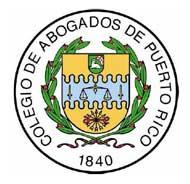
Member(s)
Colegio de Abogados y Abogadas de Puerto Rico
on 30 April 2020
The Puerto Rico Bar Association (Colegio de Abogados y Abogadas de Puerto Rico) represents all the attorneys in Puerto Rico, and has historically taken a very active role in the public debate. Since 2006 the Bar Association has been part of the World Coalition under the umbrella of the Puertorican Coalition Against the Death Penalty, […]
Puerto Rico
Member(s)
Norden Directions
on 30 April 2020
Norden Directions is an Australian non-government organisation founded in 2009. It focuses on policy in relation to social justice and human rights issues both within Australia and overseas. It has contributed to the abolition of the death penalty internationally in public debate over the past decade. Its Director, Professor Peter Norden AO, is an experienced […]
Australia

Member(s)
Harm Reduction International
on 30 April 2020
Harm Reduction International is a leading NGO dedicated to reducing the negative health, social and legal impacts of drug use and drug policy. We promote the rights of people who use drugs and their communities through research and advocacy to help achieve a world where drug policies and laws contribute to healthier, safer societies. Since […]
United Kingdom
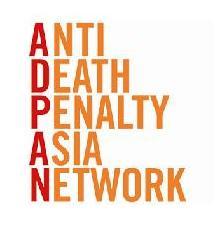
Member(s)
Anti-Death Penalty Asia Network (ADPAN)
on 30 April 2020
The Anti-Death Penalty Asia Network (ADPAN) was founded in Hong Kong on the World Day against the Death Penalty in 2006. In 2014, at its first General Meeting in Taipei, Taiwan, Anti-Death Penalty Asia Network (ADPAN) members approved ADPAN’s Constitution, and ADPAN’s first Executive Committee was elected. ADPAN, an independent Asia-Pacific network committed to working […]
Malaysia

Member(s)
Barreau de Paris
on 30 April 2020
The Paris Bar was founded under the reign of Louis XIV. Nowadays, it represents around 20 000 lawyers, i.e. nearly half of those practicing in France. Its prime objectives are to organise and structure the legal profession, to strengthen training and adapt it to the deep changes occurring in society and to expand the role […]
France
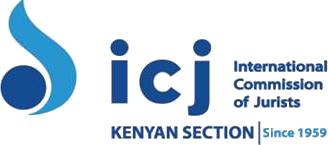
Member(s)
Kenyan Section of the International Commission of Jurists (ICJ-KENYA)
on 30 April 2020
Mandate and goals : – To develop, strengthen and protect the principles of the rule of law in Kenya. – Develop, maintain and protect the independence of the judiciary and the legal profession in Kenya. – Protect and promote the enjoyment of human rights in Kenya and Africa. Kind of actions : – Legal research […]
Kenya

Member(s)
Fédération Syndicale Unitaire (FSU)
on 30 April 2020
The United Trade-Union Federation (FSU) brings together 22 national trade unions in the fields of education, teaching, research, culture, training and social integration. They represent the majority or a large proportion of workers in their professional fields. FSU unites these national trade unions by combining diversity, pluralism and unity. Its characteristic organisational innovation is to […]
France
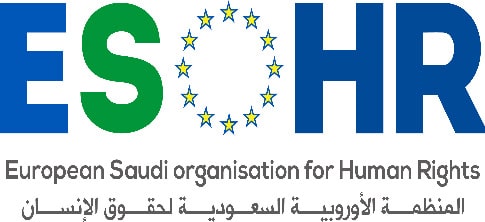
Member(s)
European Saudi Organization for Human Rights (ESOHR)
on 29 November 2023
Founded in 2013 in response to extensive human rights abuses in Saudi Arabia, European Saudi Organization for Human Rights (ESOHR), which is based in Berlin, emerged in the face of a robust campaign aimed at suppressing civil society and curtailing the activities of human rights advocates. ESOHR is committed to the abolition of the death […]
2023
Saudi Arabia
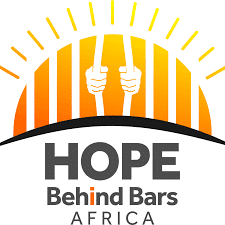
Member(s)
Hope Behind Bars Africa
on 5 September 2023
Hope Behind Bars Africa provides free legal services and direct support to indigent individuals in contact with the justice system while promoting criminal justice reforms through research, evidence-based advocacy, and technology.
2023
Nigeria
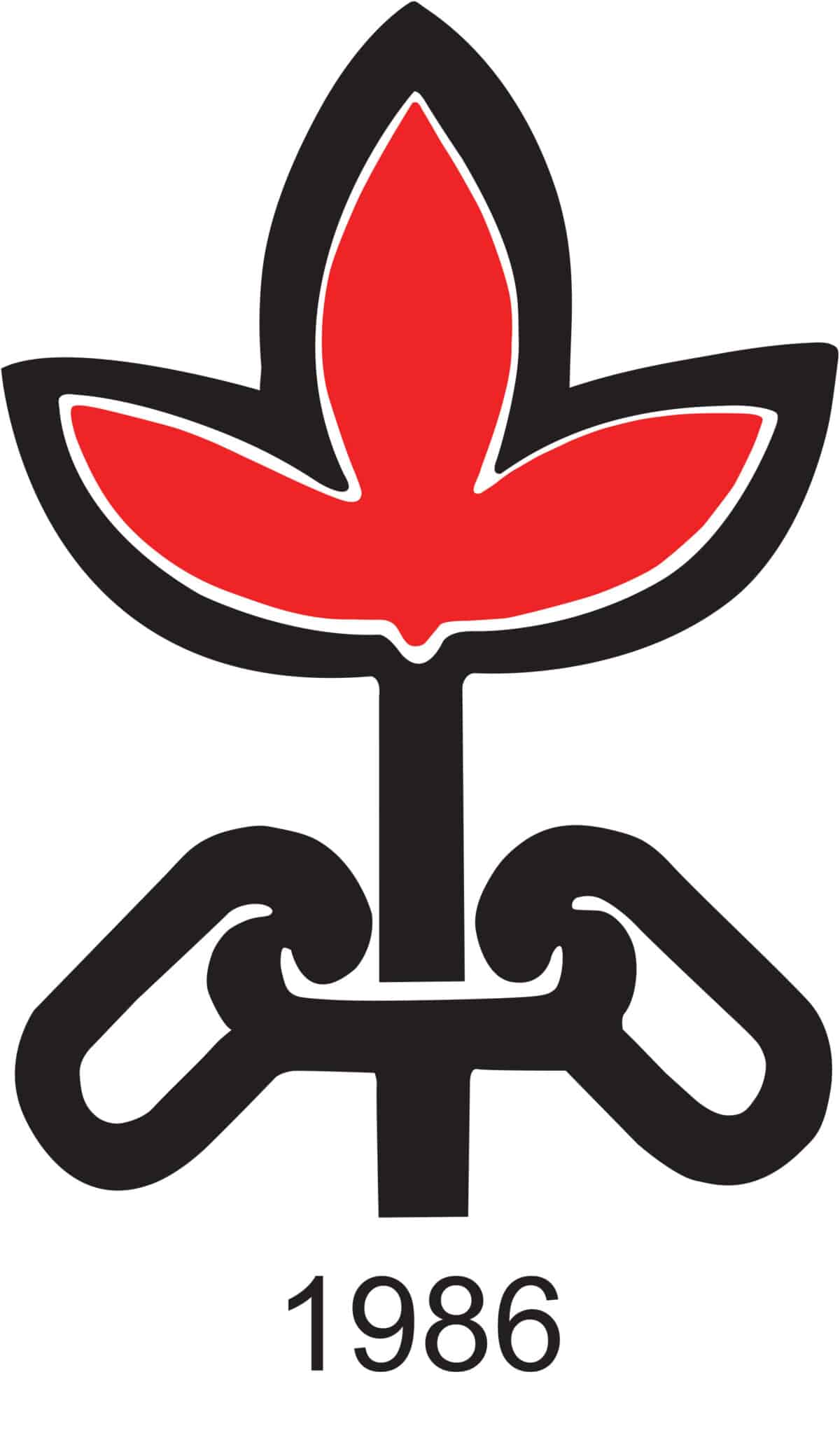
Member(s)
Human Rights Association
on 2 May 2023
The Human Rights Association (İnsan Hakları Derneği) is a non-governmental, independent, and voluntary body. The association, which was founded in 1986 by 98 human rights defenders, today has 27 branches, 7 representative offices, and ~8,000 members. İHD is the oldest and largest human rights organization in Turkey and its “sole and specific goal is to […]
2023
Turkey
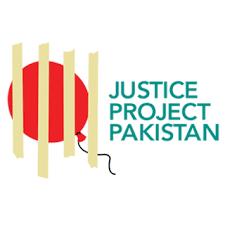
Member(s)
Justice Project Pakistan (JPP)
on 30 April 2020
Justice Project Society, commonly referred to as Justice Project Pakistan (JPP), represents the most vulnerable Pakistani prisoners facing the harshest punishments at home and abroad, including those facing the death penalty, mentally ill prisoners, juvenile prisonners, women, victims of police torture, and overseas Pakistani prisoners. JPP was the winner of the 2016 Franco-German Human Rights […]
2020
Pakistan
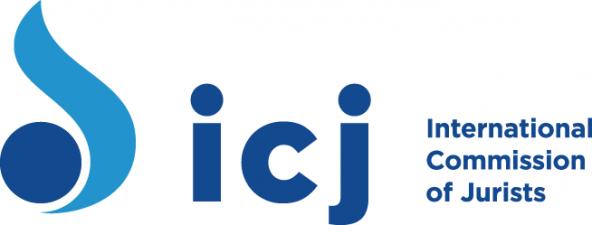
Member(s)
International Commission of Jurists
on 30 April 2020
The International Commission of Jurists (ICJ) is dedicated to promoting rule of law and advancement of human rights around the world. The ICJ statute provides: The Commission carries out activities at the global, regional, national and local level and in particular takes effective steps to: 1. Support and advance the Rule of Law and human […]
Switzerland
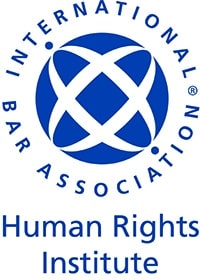
Member(s)
International Bar Association’s Human Rights Institute (IBAHRI)
on 14 March 2023
The International Bar Association’s Human Rights Institute (IBAHRI) works with the global legal community to promote and protect human rights and the independence of the legal profession worldwide. The IBAHRI is an autonomous and substantively independent entity of the International Bar Association (IBA), the world’s leading organisation of international legal practitioners, bar associations and law […]
2023
United Kingdom

Member(s)
Réseau d’alerte et d’intervention pour les droits de l’Homme (RAIDH)
on 30 April 2020
The Alert and Intervention Network for Human Rights (Réseau d’alerte et d’intervention pour les droits de l’Homme (RAIDH) aims to organise, finance and support any work, initiatives, measures, ideas or discussions which aim to defend and promote human rights (particularly civil and political rights, economic, social and cultural rights, international humanitarian rights, rights for refugees, […]
2020
France

Member(s)
German Coalition to Abolish the Death Penalty
on 30 April 2020
The Initiative gegen die Todesstrafe e.V. (German Coalition to Abolish the Death Penalty – GCADP) was founded in 1997 and is a non-profit organization since 2000. Our association is committed to the worldwide abolition of the death penalty. Our work is based on the contents of the Universal Declaration of Human Rights of 1948 as […]
Germany

Member(s)
International Federation for Human Rights (FIDH)
on 30 April 2020
The International Federation for Human Rights (FIDH)’s mandate is to act effectively to ensure all the rights laid down in the Universal Declaration of Human Rights are respected. These include civil and political rights, as well as economic, social and cultural ones. The FIDH is a federation of 141 leagues in 100 countries. It coordinates […]
France
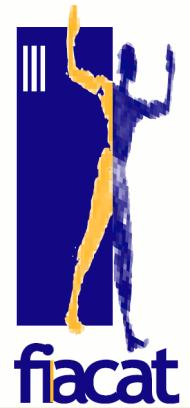
Member(s)
International Federation of ACATs (FIACAT)
on 30 April 2020
The International Federation of ACATs (Action by Christians for the Abolition of Torture), FIACAT, is an international non-governmental human rights organisation, set up in 1987, which works towards the abolition of torture and the death penalty. The Federation brings together some thirty national associations, the ACATs, present in four continents. FIACAT – representing its members […]
France

Member(s)
Parliamentarians for Global Action (PGA)
on 30 April 2020
Parliamentarians for Global Action (PGA), a non-profit, non-partisan international network of over 1,200 legislators in approximately 130 elected parliaments around the globe, aims to promote peace, democracy, the rule of law, human rights, gender equality and population issues by informing, convening, and mobilizing parliamentarians to realize these goals. The network of legislators’ programme of work […]
United States
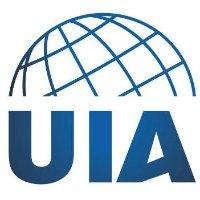
Member(s)
International Association of Lawyers
on 30 April 2020
Established in 1927, and with members in 110 countries, the UIA (International Association of Lawyers) is a global and multi-cultural organization for the legal profession that facilitates professional development, stimulates learning and networking, and promotes the Rule of Law. UIA is open to all the world’s lawyers, both general practitioners and specialists. The UIA’s members […]
France
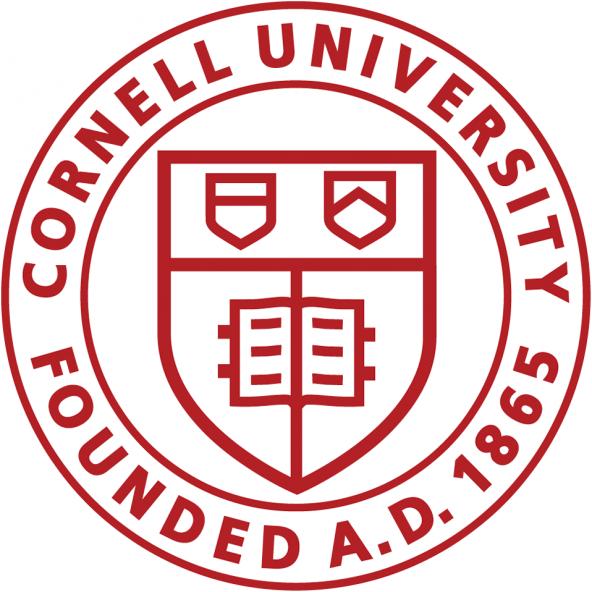
Member(s)
Cornell Center on Death Penalty Worldwide
on 30 April 2020
A research, training, and advocacy center focused on promoting international human rights law in the application of the death penalty.
United States
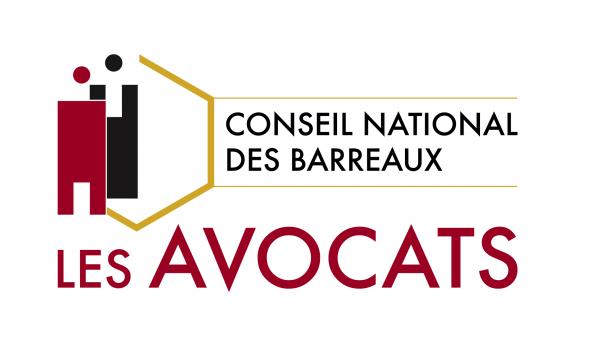
Member(s)
Conseil national des barreaux
on 30 April 2020
France
Member(s)
Kenya Human Rights Commission
on 30 April 2020
Kenya
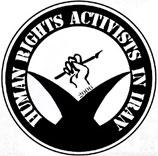
Member(s)
Human Rights Activists in Iran (HRAI)
on 30 April 2020
Human Rights Activists in Iran (also known as HRAI and HRA) is a non-political and non-governmental organization comprised of advocates who defend human rights in Iran. HRAI was founded in 2006 and aims to promote, safeguard and sustain human rights in Iran. The organization keeps the Iranian community and the world informed by monitoring human […]
Iran (Islamic Republic of)

Member(s)
National Association of Criminal Defense Lawyers (NACDL)
on 30 April 2020
The National Association of Criminal Defense Lawyers is the preeminent organization advancing the mission of the criminal defense bar to ensure justice and due process for persons accused of crime or wrongdoing. A professional bar association founded in 1958, NACDL’s 12,000-plus direct members in 28 countries – and 90 state, provincial and local affiliate organizations […]
United States

Member(s)
Ville de Braine-l’Alleud
on 30 April 2020
The town of Brain-l’Alleud is located in Brabant wallon in the Hain valley, about twenty kilometres from Brussels. It has 37,000 inhabitants. Previously the site of the Battle of Waterloo in 1815, today the town welcomes much more peaceful activities, including a large number of NGOS and in particular an Amnesty International group and the […]
Belgium
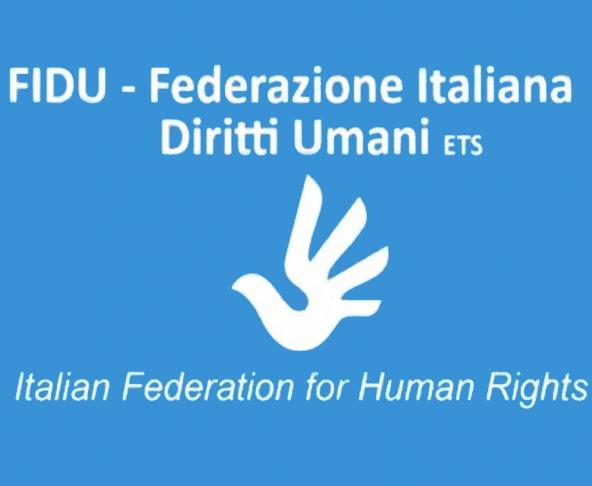
Member(s)
Italian Federation for Human Rights (FIDU)
on 30 April 2020
Active since 1987 as Italian Helsinki Committee, FIDU promotes the protection of human rights as enshrined in the Universal Declaration of Human Rights of 1948, the International Covenant on Civil and Political Rights and the International Covenant on Economic, Social in other relevant international documents. FIDU therefore intends to work to spread the knowledge of […]
Italy
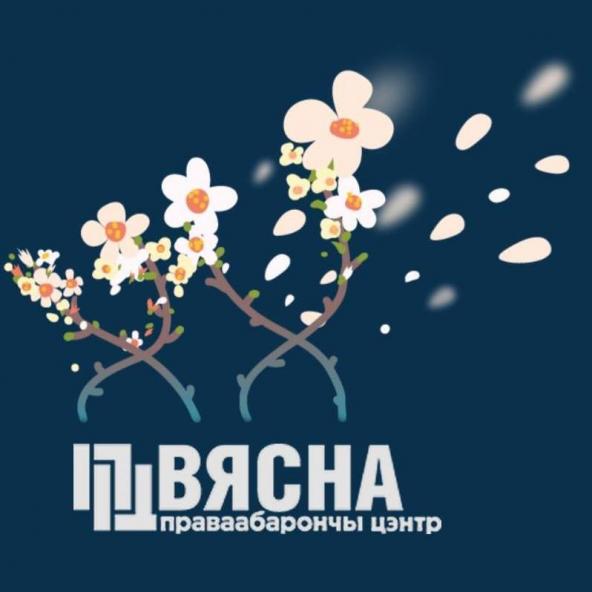
Member(s)
The Human Rights Centre “Viasna”
on 30 April 2020
The Human Rights Centre “Viasna” is a non-governmental human rights organization active since 1996. It is a nation-wide NGO with a central office in Minsk and a dozen local offices across the country. Viasna has about 200 members. In 2003, the Supreme Court groundlessly cancelled the registration of Viasna for its participation in the observation […]
Belarus

Member(s)
Città di Reggio Emilia
on 30 April 2020
For a long time, the city of Reggio Emilia has been proud of its strong vocation for the struggle in defense of Human Rights, which is supported by the commitment of the entire community. An example is that, in order to strengthen its contribution in the struggle against apartheid in South Africa, the city signed […]
Italy

Member(s)
Journey of Hope… From Violence to Healing
on 30 April 2020
“Journey of Hope…from Violence to Healing is an organisation led by murder victim family members joined by death row family members, family members of the executed, the exonerated, and others with stories to tell, that conducts public education speaking tours and addresses alternatives to the death penalty. Every year, the organisation arranges a Journey of […]
United States
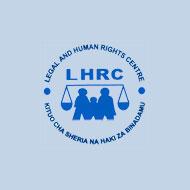
Member(s)
Legal and Human Rights Centre (LHRC)
on 30 April 2020
The Legal and Human Rights Centre (LHRC) is registered as a private, non-governmental, non-partisan and non-profit making organization based in Tanzania, East Africa. The LHRC works to create legal and human rights awareness among the public, in particular the underprivileged section of the society of Tanzania, through legal and civic education, provision of legal aid, […]
United Republic of Tanzania

Member(s)
Ligue des droits de l’Homme
on 30 April 2020
Founded in 1898 during the Dreyfus affair, the League for Human Right (LDH) has a rich history thanks to a century of activism and attentive monitoring of all major contemporary issues. Originally, its mandate was to defend an innocent man, victim of anti-Semitism and reason of state, but the LDH expanded its actions to include […]
France
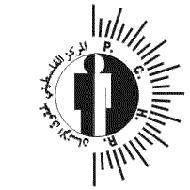
Member(s)
Palestinian Center for Human Rights
on 30 April 2020
The Palestinian Centre for Human Rights (PCHR) is an independent Palestinian human rights organisation based in Gaza City. It enjoys Consultative Status with the ECOSOC of the United Nations and is an affiliate of the International Commission of Jurists (Geneva), the International Federation for Human Rights (Paris), the Euro-Mediterranean Human Rights Network (Copenhagen) and the […]
State of Palestine

Member(s)
People of Faith Against the Death Penalty
on 30 April 2020
People of Faith Against the Death Penalty (PFADP) is a nongovernmental organisation whose mission is to educate and mobilise faith communities to act to abolish the death penalty in the United States. Founded in 1994 in North Carolina, PFADP focuses its programs on organising among faith communities in the Southern United States, where most executions […]
United States

Member(s)
Witness to Innocence
on 30 April 2020
The mission of Witness to Innocence (WTI) is to unite U.S. exonerated death row survivors and their loved ones to become a powerful force for social justice and transformation. WTI seeks to abolish the death penalty, to reform the U.S. criminal justice system to prevent wrongful convictions, and to secure fair financial compensation and social […]
United States
Member(s)
Legal Defence & Assistance Project (LEDAP)
on 30 April 2020
LEDAP – Legal Defence & Assistance Project provides legal aid to victims of human rights violations, campaign for abolition of the death penalty in Nigeria, documentation of unlawful killings in Nigeria, support to torture survivors, domestic violence support to victims, legislative advocacy on criminal justice, gender violence, human rights. LEDAP is a member of the […]
Nigeria
Member(s)
Center for Constitutional Rights
on 30 April 2020
Center for Constitutional Rights is an American NGO based in New York. The Center for Constitutional Rights is committed to fighting injustice on many fronts, as demonstrated by the breadth of our cases as well as our organizing work. CCR works on a wide range of issues: illegal surveillance and attacks on dissent, Criminal Justice […]
United States

Member(s)
Abdorrahman Boroumand Center for the Promotion of Human Rights and Democracy in Iran
on 30 April 2020
Abdorrahman Boroumand Center previously know as Abdorrahman Boroumand Foundation Mandate and goals : Promoting universal human rights in Iran and documenting the violation of the right to life in the Islamic Republic of Iran Kind of actions : Creation of an online memorial to the victims of the violation of the right to life in […]
Iran (Islamic Republic of)
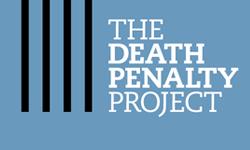
Member(s)
The Death Penalty Project (DPP)
on 30 April 2020
The Death Penalty Project is an international legal action charity, based in London, working to promote and protect the human rights of those facing the death penalty. We provide free legal representation to death row prisoners around the world, with a focus on Commonwealth countries, to highlight miscarriages of justice and breaches of human rights. […]
United Kingdom
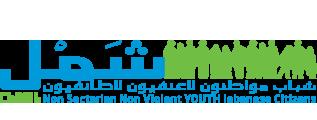
Member(s)
Chaml (Non-Violent Non-Sectarian Lebanese Citizenly Youth)
on 30 April 2020
Mandate and goals : Spread the culture of non-violence, non-sectarianism and human rights and advocate for political/legal change that is relevant to our values. We have five principles: Non-sectarianism, Non-violence, Justice, Democracy, and Sovereignty. Kind of actions : – Raise awareness, protest, and lobby to pass the Lebanese Personal Status law – Document sectarian hate […]
Lebanon

Member(s)
Serbia Against Capital Punishment (SACP)
on 30 April 2020
Serbia Against Capital Punishment (SACP) was formed in 2012 to work towards universal abolition of the death penalty and to oppose its reintroduction in Serbia or any other country. It also opposes torture, as well as all other inhuman and degrading punishments. SACP maintains a data base of more than 7.000 persons sentenced to death […]
Serbia
Member(s)
Kurdistan Human Rights Association-Geneva (KMMK-G)
on 30 April 2020
Kurdistan Human Rights Association-Geneva (KMMK-G) is an independent organization, with no political affiliation. KMMK-G was established in 2006 to serve as a bridge between the Kurdish civil society and the United Nations (UN) agencies and International institutions on the one hand, and the Kurdish and Iranian civil society on the other hand. The organization aims […]
Iran (Islamic Republic of)
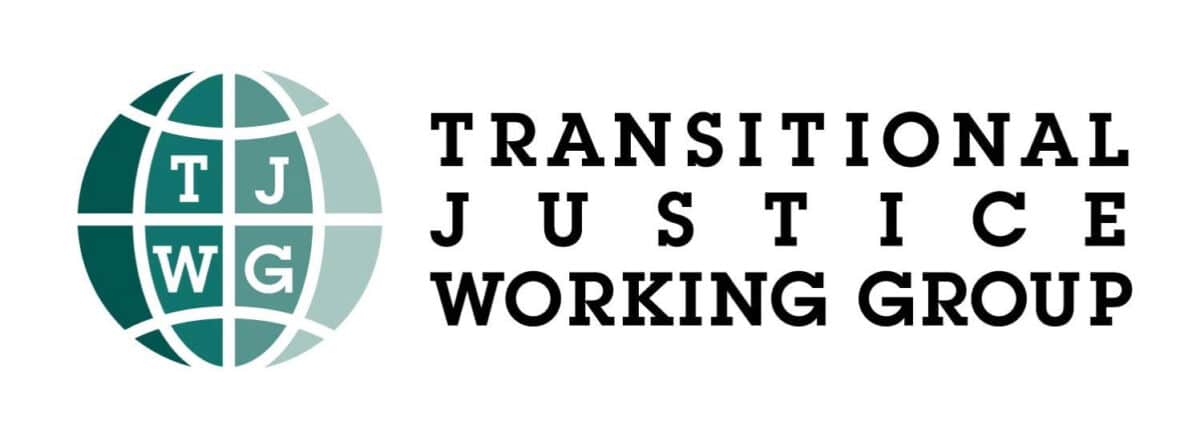
Member(s)
Transitional Justice Working Group (TJWG)
on 15 December 2023
As a human rights documentation NGO, TJWG has published biennial reports on public executions in North Korea based on interviews with North Korean defectors in 2017, 2019 and 2021. TJWG has also been calling for the complete abolition of the death penalty in North and South Korea, which has maintained it in the laws even […]
2023
Republic of Korea
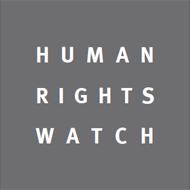
Member(s)
Human Rights Watch
on 30 April 2020
Human Rights Watch is a nonprofit, nongovernmental human rights organization made up of more than 275 staff members around the globe. Its staff consists of human rights professionals including country experts, lawyers, journalists, and academics of diverse backgrounds and nationalities. Human Rights Watch is known for its accurate fact-finding, impartial reporting, effective use of media, […]
2020
France

Member(s)
Humanity Diaspo
on 27 March 2024
WOMEN’S HUMANITARIAN AND DEVELOPMENT NGO Humanity Diaspo is a non-profit, humanitarian, development, TechForGood and feminist non-governmental organisation (NGO). Humanity Diaspo is independent of any political, religious or philosophical movement. Humanity Diaspo’s aim, where appropriate in partnership with local entities, is to support people in situations of distress, exile and migration, precariousness and exclusion in all […]
2024
France
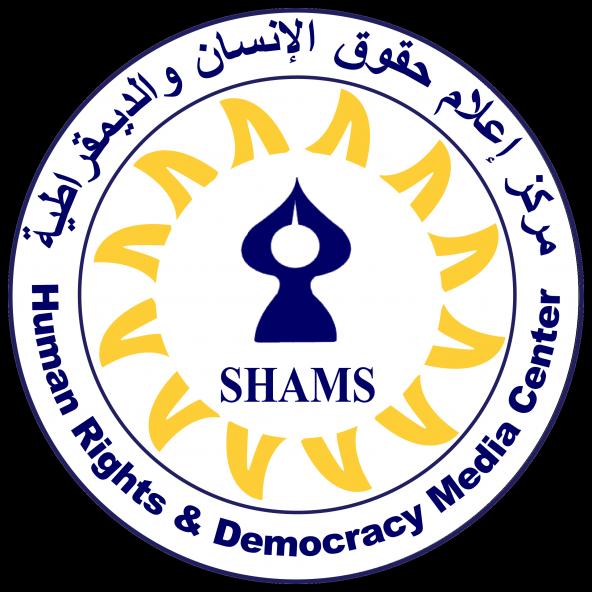
Member(s)
Human Rights and Democracy Media Center (SHAMS)
on 30 April 2020
Human Rights and Democracy Media Center “SHAMS” is a Palestinian non-governmental non-profit organization, established in 2003 in Ramallah by a group of academicians, educated, advocates and human rights activists .“SHAMS” Center holds Special Consultative Status with the Economic and Social Council (ECOSOC) of the United Nations “SHAMS” Center believes that dissemination and generalization of human […]
2020
State of Palestine
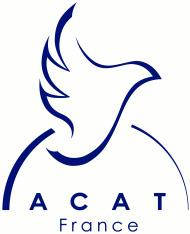
Member(s)
ACAT France
on 30 April 2020
ACAT-France – Action by Christians for the Abolition of Torture – is a human rights NGO that campaigns for the abolition of torture and the death penalty, and defends the right to asylum. Founded in 1974, ACAT-France has 28,000 members, including nearly 6,000 supporters and a team of 25 professionals working in its national secretariat. […]
France
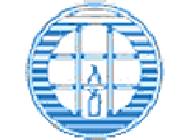
Member(s)
Association Marocaine des Droits Humains (AMDH)
on 30 April 2020
Association marocaine des droits humains (AMDH) works towards safeguarding human dignity and for the respect, defence and promotion of human rights. Convinced of the universal nature of these rights, the AMDH bases its action on the international agreements which defend them. It campaigns for them to be respected in the political, civil, economic, social and […]
Morocco
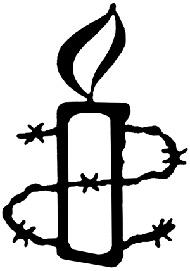
Member(s)
Amnesty International (AI)
on 30 April 2020
Amnesty International (AI) is a worldwide voluntary activist movement working for human rights. It is independent of any government, political ideology, or religious creed, economic interest or religion. It does not support or oppose any government or political system, nor does it support or oppose the views of the victims whose rights it seeks to […]
United Kingdom

Member(s)
Youth Safety Awareness Initiative (Crime Si Poa®)
on 27 March 2024
Youth Safety Awareness Initiative mission is to promote social justice and a crime-free society through education, advocacy and social enterprise, targeting children and young people. Youth Safety Awareness Initiative primarily focus on discouraging at-risk and vulnerable youth from engaging in criminal activities and addressing threats to peace through behavioral and attitudinal change, while promoting the […]
2024
Kenya

Member(s)
Avocats Sans Frontières France
on 30 April 2020
The mandate and objectives of Avocats Sans Frontières France are: 1. Defending lawyers and defenders of human rights subject to threats or attacks of any kind because of their exercise professional; 2. Contribute to the effective implementation of human rights, universally recognized for ensuring the acces to any private person to a free and independent […]
2020
France
Document(s)
America’s Experiment With Capital Punishment: Reflections on the Past, Present, and Future of the Ultimate Penal Sanction
By Carol S. Steiker / James R. Acker / Jordan M. Steiker / Richard J. Wilson / Robert Blecker / Stephen B. Bright / Charles S. Lanier / Robert M. Bohm / Carolina Academic Press / Ernest van den Haag / Ruth D. Peterson / William C. Bailey / Jon Sorensen / James Marquart / Victor L., on 8 September 2020
2020
Book
United States
More details See the document
The second edition of America’s Experiment with Capital Punishment is an updated and expanded version of the comprehensive first edition. Chapters, authored by the country’s leading legal and social science scholars, have been revised to include a host of important developments since the 1998 edition. Thus, new evidence and information is presented concerning racial disparities in the administration of the death penalty, wrongful convictions, deterrence, the prediction of future dangerousness, jury decision-making, public opinion about the death penalty, the effects of the capital punishment process on murder victims’ and offenders’ relatives, death row incarceration, the costs of capital punishment, execution methods, and many other issues.
- Document type Book
- Countries list United States
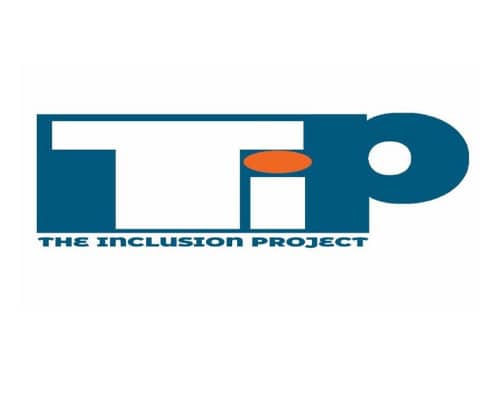
Member(s)
The Inclusion Project
on 13 September 2024
The Inclusion Project (TIP) is a legal services provider founded in 2019 and registered in Nigeria as The Inclusion Project.
2024
Nigeria
Philippines_Brochure2021_BICOLANO_V1-BD
on 23 March 2021
2021
Philippines_Brochure2021_PANGASINENSE_V3_basse-def
on 23 March 2021
Philippines_Brochure2021_TAGALOG_V3-basse-def
on 23 March 2021
Philippines_Brochure2021_MARANAO_V1-BD
on 23 March 2021
Philippines_Brochure2021_Kapampangan_V2-basse-def
on 23 March 2021
Philippines_Brochure2021_ILOKANO_V1-BD
on 23 March 2021
Philippines_Brochure2021_tausug_V2-BD
on 23 March 2021
Philippines_Brochure2021_EN_V4-basse-def
on 23 March 2021
Philippines_Brochure2021_waray_V2_basse-définition
on 23 March 2021
Philippines_Brochure2021_CEBUANO_V2
on 23 March 2021

